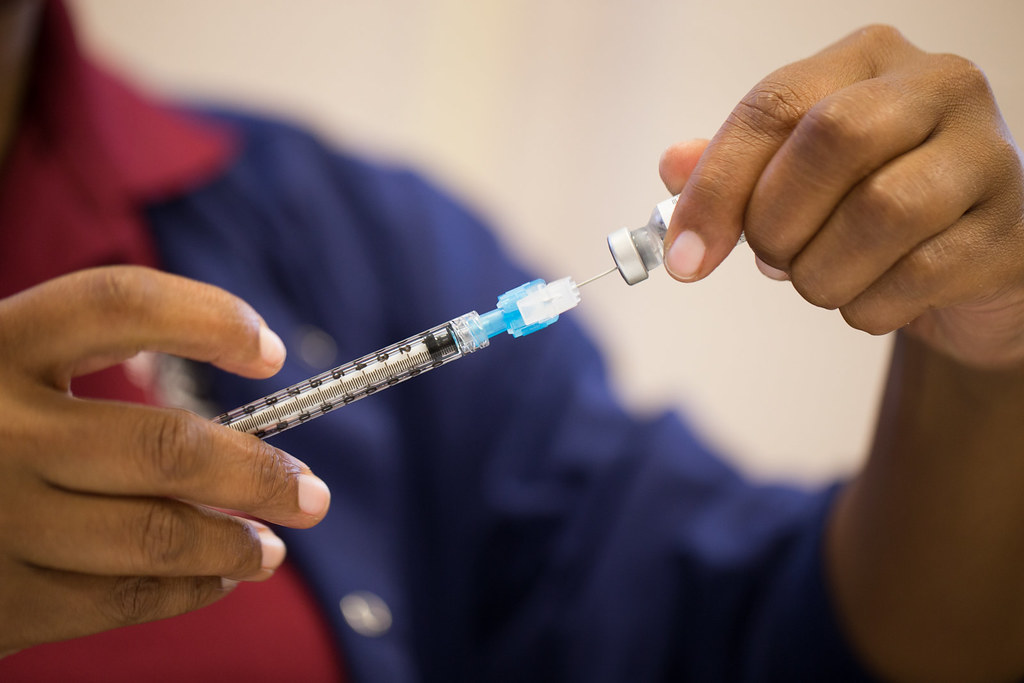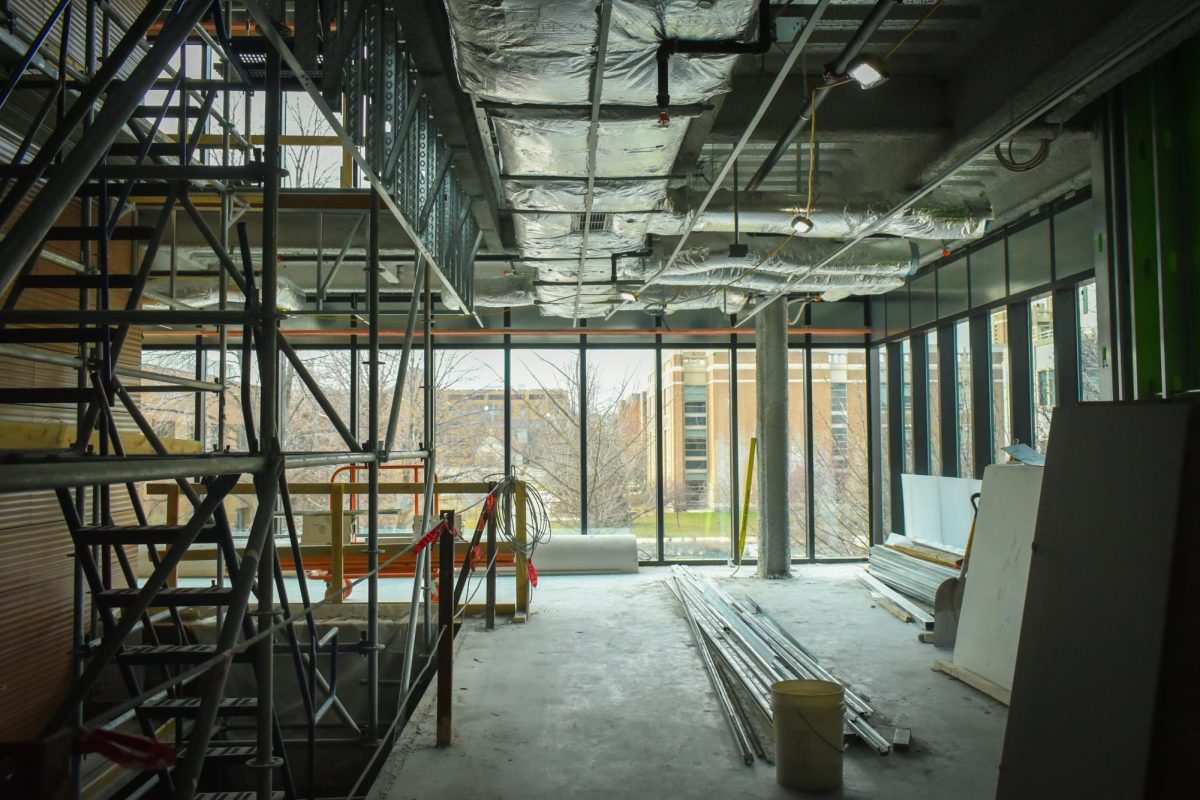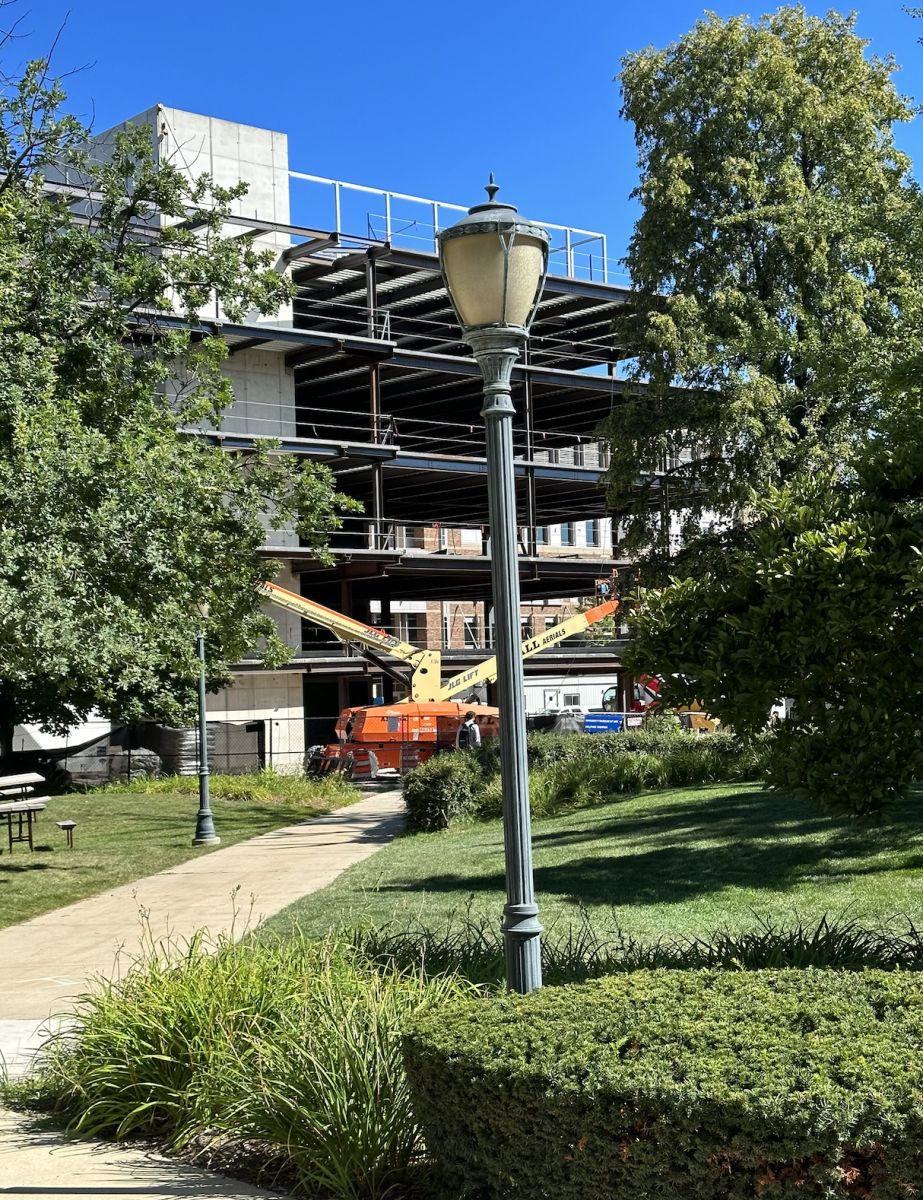 Marquette’s journalism and business programs have been celebrating their centennial mark at the university this year. But while 100 may be a big number, 75 is also important — the number marking the 75th anniversary of the College of Nursing.
Marquette’s journalism and business programs have been celebrating their centennial mark at the university this year. But while 100 may be a big number, 75 is also important — the number marking the 75th anniversary of the College of Nursing.
The college and university are preparing to commemorate the milestone anniversary, but nursing students and faculty are also taking a closer look at the history of the college.
Dean Margaret Callahan said she feels the college has a long history to share.
“During its infancy, the college was quite ahead of the time,” Callahan said. “We can look to our history to get a better understanding of the importance of nursing and how we can keep moving forward as a college.”
Established in 1936, the College of Nursing was born out of the hospital and nursing program at the nearby St. Joseph’s Hospital, where the college was housed until its move to a campus building in 1982. The university decided to create a nursing college, and developed a baccalaureate program in nursing.
“(The creation of the degree and college) was very visionary and pioneering for the time period,” Callahan said. “It used to be that schools would offer certificates or a three-year diploma. The creation of the college and its programs was a very new and innovative way to look at nursing education.”
In 1938, just two years after the college’s inception, a master’s degree in nursing was created.
“The creation of a master’s degree was decidedly ahead of the curve when it was implemented,” Callahan said. “It was instrumental in advancing nursing education and bringing about new initiatives in nursing at Marquette.”
The pioneering history of the college is one reason why Madeline Wake, a university professor and former nursing dean, is part of an effort to publish an updated modern history of the college and a reflection on what the college has contributed to the nursing industry.
“The new publication will include a book on the early history written by former Dean Rosalie Klein and a chronology from 1988 to the present,” Wake said. “It’s not only about how the college has matured and progressed, but also reflecting on how the college has contributed to advances in nursing.”
Wake said the most powerful evidence of the college’s contributions is in the more than 7,000 nursing alumni, a sentiment echoed by Callahan.
“The college has a lot to be proud of, like working with our two clinics or our doctorate program,” Callahan said. “But our greatest strength lies within our graduates and alumni working in a host of important facilities and programs.”
In addition to reflecting on the college’s past, there is also a string of events and seminars celebrating the anniversary.
“We had a wonderful kick-off mass and reception at Gesu earlier,” said Darlene Weis, an associate professor emeritus and co-chair of the 75th anniversary committee. “We also have a series of lectures, including the James Wake Memorial Lecture, lined up.”
The culmination of the 75th anniversary celebrations will be the professional conference planned for next July, where a number of alumni and distinguished speakers are slated to attend the conference and gala celebration dinner, Weis said.





